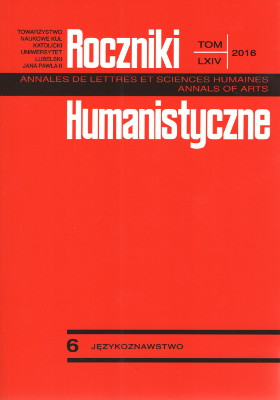Rozważania o domniemanym slawizmie w dialekcie kreteńskim języka nowogreckiego
Considerations on an alleged slavism in the cretan dialect of modern greek
Author(s): Elwira KaczyńskaSubject(s): Language and Literature Studies, Theoretical Linguistics, Applied Linguistics, Language acquisition, Comparative Linguistics
Published by: Towarzystwo Naukowe KUL & Katolicki Uniwersytet Lubelski Jana Pawła II
Keywords: borrowings; Crete; language contacts; Modern Greek
Summary/Abstract: Mod. Gk. dial. (East Cretan) βέρα f. ‘armistice, truce, conciliation, reconciliation’ is usually treated as a borrowing from a South Slavic source, cf. Mac. vera, Bulg. vjára ‘faith, belief’, Pol. wiara (< Proto-Slavic *věra). If this connection would be correct, then the meaning of the Cretan word could suggest a military mediation. The word in question could be taken from Slavic mercenary soldiers, participating in the Cretan campaign of Nicefor II Fokas against the Muslim emirat of the island (960-961). On the other hand, most researchers ignore the fact that Cretan term βέρα may derive from Turkish vère ‘capitulation, surrender’. The word βέρα appears in the same meaning (‘surrender, capitulation’) in Modern Greek literary texts of the 18th and 19th c. AD. The Romanian appellative veră ‘capitulation’ (formally identical with the Cretan term βέρα) is listed among the obvious Turkish loanwords. Also the meaning of the Cretan word seems to suggest its Turkish origin (and not a Slavic one).
Journal: Roczniki Humanistyczne
- Issue Year: 64/2016
- Issue No: 6
- Page Range: 31-50
- Page Count: 20
- Language: Polish

